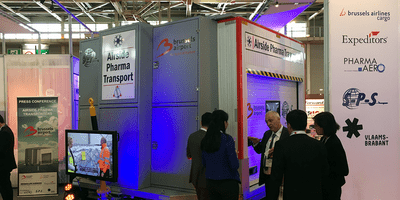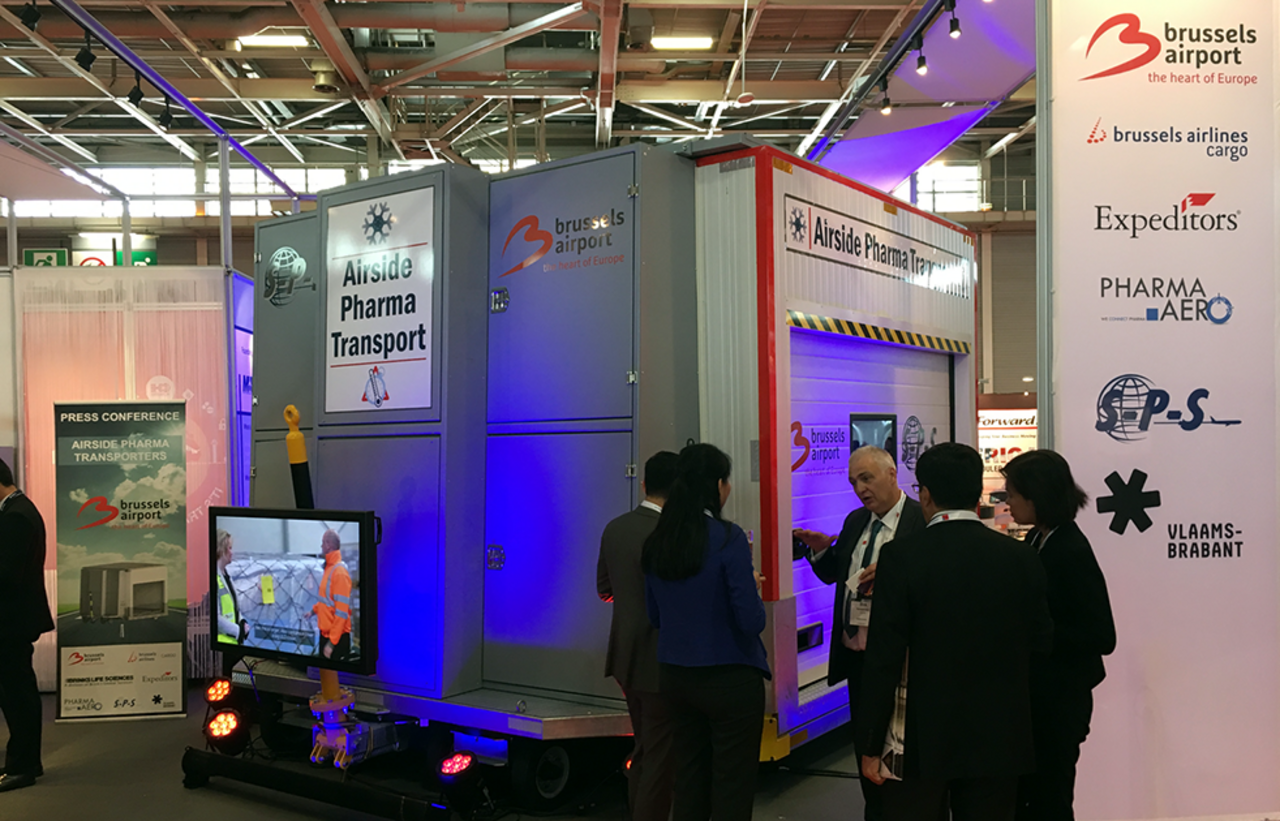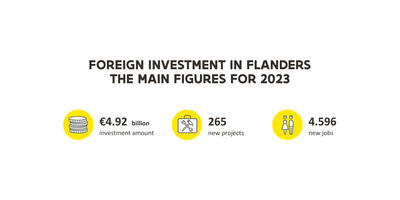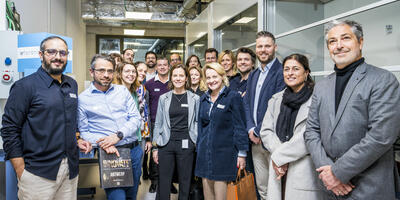
Brussels Airport prepares for COVID-19 vaccine distribution

One of a kind in Europe
“We’re expecting the first, limited transports at the end of October,” says Nathan De Valck, responsible for air freight activities at Brussels Airport. “When transporting vaccines by air, speed and constant temperature conditions are crucial. Our main asset at Brussels Airport is that we have 30,000 square meters of temperature-controlled pharmaceutical warehouses, the most of any European airport. Our expertise and experience also contribute to our top-notch position in this field: we transport tens of thousands of tons of vaccines every year.”
As such, Brussels Airport shares in the success of Flanders’ leading pharma cluster, which includes Europe’s first-ever vaccinopolis and branches of Pfizer and Johnson & Johnson, two pharma giants who are developing candidate COVID-19 vaccines. Additionally, no less than a quarter of the 100 logistics service providers at Brussels Airport specialize in handling pharmaceuticals.
“What’s more,” De Valck adds, “we are the first airport to have developed a large fleet of Airside Pharma Transporters. These allow us to safely transport vaccines across the airport tarmac in a temperature-controlled way, from the refrigerated warehouses to the airplane. They run on batteries and are equipped with solar panels and cooling units. Sensors monitor the temperature in real time. If something goes wrong, an alarm will go off. This distinct offering sets us apart from other airports.”
Dazzling transport conditions
As chairman of Pharma.Aero (which unites logistics firms, international airports such as Singapore and Miami, and pharmaceutical companies such as Pfizer, GSK and Johnson & Johnson), Nathan De Valck thoroughly understands the uncertainties surrounding the large-scale distribution of COVID-19 vaccines. “Through close contact with various pharmaceutical companies, we know that there will be different transport conditions, depending on the type of vaccine,” De Valck explains.
“We are acquainted with the classic refrigerated transport conditions: between 2 and 8 degrees Celsius. But some vaccines will need to be transported at freezing temperatures down to perhaps -70 degrees Celsius, using dry ice or liquid nitrogen. This is already being done today at Brussels Airport, but the key question is: how much will we have to transport in the future under which specific conditions?”
Another possible bottleneck in the air transport of COVID-19 vaccines is the available capacity. International aviation association IATA calculated that around 8,000 jumbo jets will be required. “Today, half of the vaccines that pass through Brussels Airport are transported by full-freighter aircraft, while the other half is transported by passenger aircraft. Many pharma companies prefer passenger flights because these are often more frequent and more punctual,” De Valck points out.
Service providers upping the ante
In the meantime, various logistics services providers specializing in pharma transport at Brussels Airport are prepping themselves, too. One of them is Kuehne+Nagel, which confirms that discussions with vaccine manufacturers are ongoing. “We can’t give any names yet,” says Geert Torfs, Air Logistics Director Belux at Kuehne+Nagel. “But we expect the first COVID-19 vaccine transports around the turn of the year. A large part will be exported from Belgium.”
Kuehne+Nagel has been operating from a new distribution hub at Brucargo, the freight area of Brussels Airport, since June 2020. Of the building’s 15,000 square meters of temperature-controlled warehouses, the Swiss logistics group uses 6,000 square meters for medicines and vaccines. Deploying specialized trucks and its highly specialized global logistics network, Kuehne+Nagel is able to guarantee high-quality cold chain transport of vaccines to vaccination centers.
But Kuehne+Nagel is far from the only company to have recently invested and added to the Flanders’ pharmaceutical logistics expertise. In September 2020, ODTH First Class Logistics kicked off the construction of a new certified and refrigerated pharma warehouse next to the container terminal on the Brussels–Scheldt Maritime Canal in Willebroek. “In recent years, we have seen strong growth in our pharma activities,” explains Veroniek De Mulder, CEO of ODTH. “Following an initial expansion in 2017, it’s now time to further develop our refrigerated activities. The new warehouse will be operational at the beginning of April 2021.”
The proof is in the figures (2020)The figures tell the successful tale of Brussels Airport’s pharma hub. For starters, it has the largest area of temperature-controlled warehouses for medicines and vaccines of all European airports: 30,000 square meters, an area that doubled in five years. The number of pharma shipments by air grew by 85% over the past four years.
With annual double-digit growth rates, that’s far above the growth in overall air cargo volumes. What’s more, 25 of the airport’s 100 logistics companies specialize in the handling of medicines and vaccines. For exports, pharmaceutical transport accounts for 8% of Brussels Airport’s total air freight. This is more than twice as much as the average of all European airports. |


